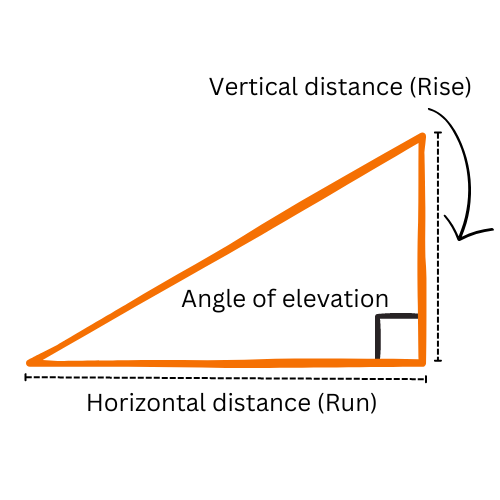A Slope Elevation Calculator is a useful tool for determining the slope or gradient between two points, which is essential in fields like civil engineering, construction, landscaping, and road design.
Formulas Used in the Calculator
1. Elevation Difference
The elevation difference is calculated by subtracting the elevation of Point A from the elevation of Point B.
Elevation Difference=Elevation of Point B−Elevation of Point A
2. Slope (Gradient)
The slope is calculated by dividing the elevation difference by the horizontal distance. It can be expressed as:
- A ratio (e.g., 1:20).
- A percentage (e.g., 5%).
- An angle in degrees (optional).
Slope (Ratio)=Horizontal DistanceElevation Difference
Slope (Percentage)=(Horizontal DistanceElevation Difference)×100
3. Slope Angle (Optional)
The slope angle can be calculated using the arctangent function:
Slope Angle=arctan(Horizontal DistanceElevation Difference)
Example Calculation
Inputs:
- Elevation of Point A: 100 meters
- Elevation of Point B: 120 meters
- Horizontal Distance: 200 meters
Step 1: Calculate Elevation Difference
Elevation Difference=120m−100m=20m
Step 2: Calculate Slope (Ratio and Percentage)
Slope (Ratio)=200m20m=0.1(or 1:10)
Slope (Percentage)=0.1×100=10%
Step 3: Calculate Slope Angle (Optional)
Slope Angle=arctan(200m20m)=arctan(0.1)≈5.71∘
Outputs:
- Elevation Difference: 20 meters
- Slope (Ratio): 1:10
- Slope (Percentage): 10%
- Slope Angle: 5.71° (optional)
Why Use a Slope Elevation Calculator?
- Accuracy: Ensures precise slope calculations for construction and design projects.
- Efficiency: Saves time compared to manual calculations.
- Versatility: Can be used for roads, ramps, landscaping, and more.

Check out 3 Similar Calculators: